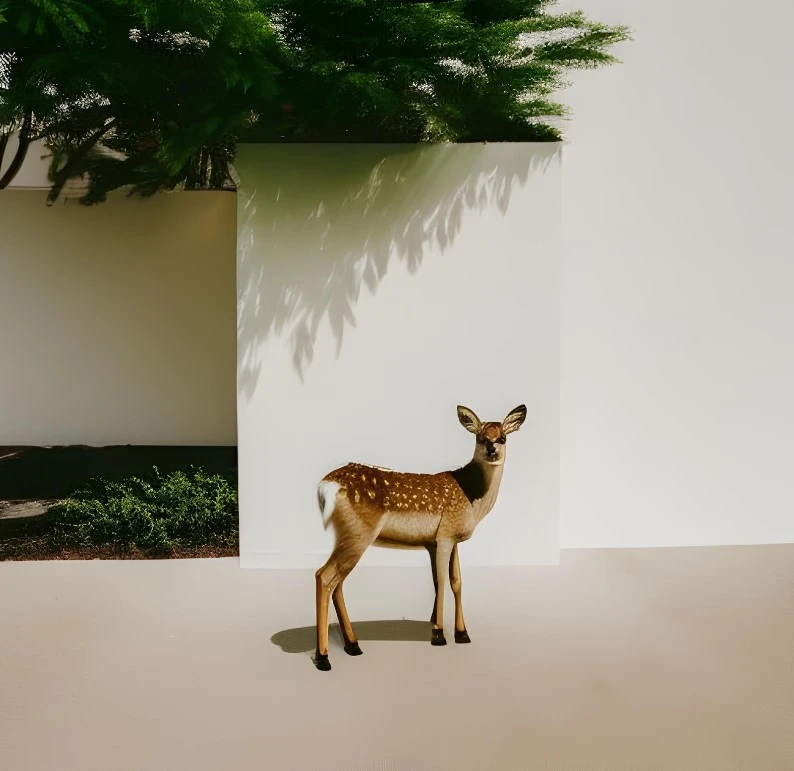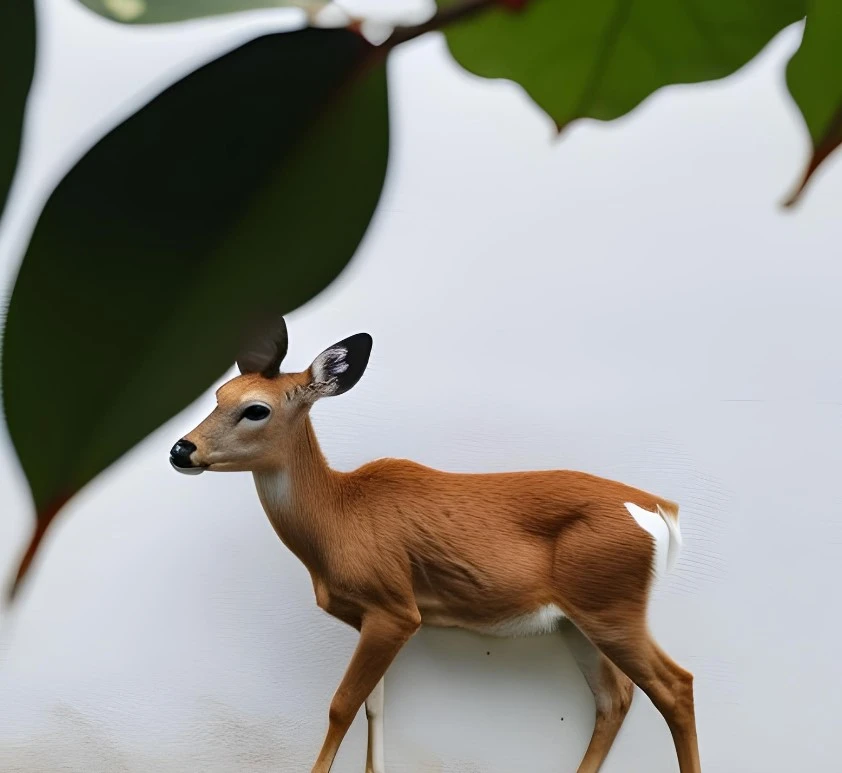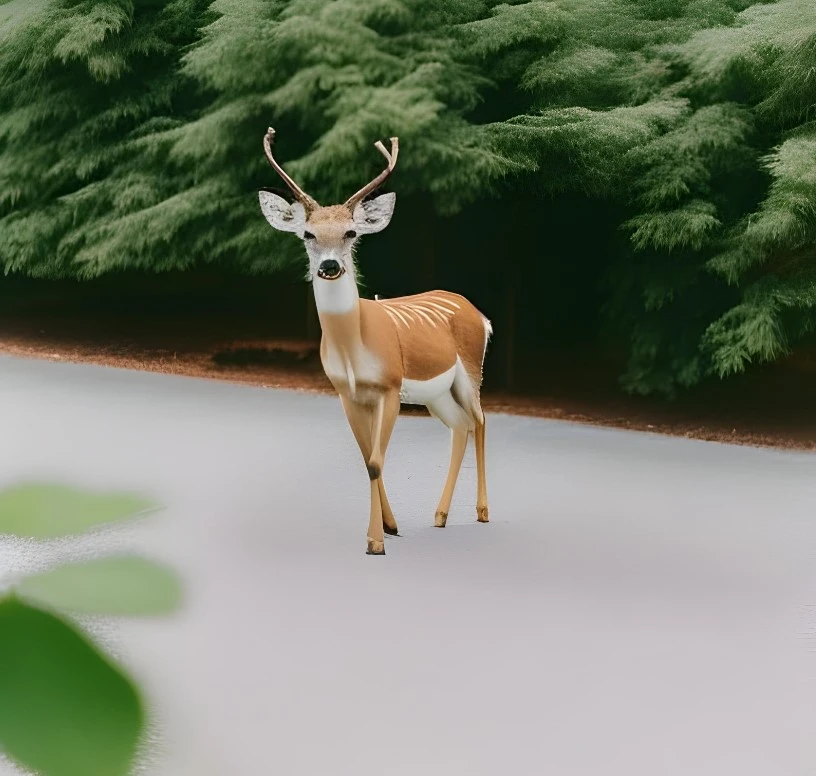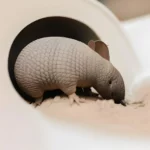Do you have deer poop in yard? Well, you’re not alone! Many people who live in areas where there are lots of deer often find these little brown pellets scattered throughout their yards. But what is deer poop and why do they leave it all over the place?
Deer poop, also known as “droppings,” is a type of animal waste that comes from the digestive system of a deer. It’s usually small and round, with a dark brown color and a slightly tapered end. Deer have to poop just like we do, but they don’t use toilets or litter boxes like humans or pets. Instead, they simply drop their droppings wherever they happen to be at the time – which can sometimes be in our yards! So if you see some little brown balls on your lawn, chances are good that a deer has been visiting recently.
What Is Deer Poop?
Deer poop is the waste matter excreted by deer. It’s a common sight in yards, parks, and other places where deer roam freely. The fecal composition of deer varies depending on their diet. They are herbivores that consume grasses, leaves, fruits, nuts, and twigs.
The fecal pellets of deer are typically small and oval-shaped. They’re usually dark brown or black in color and have a rough texture. Each pellet can be about an inch long and half an inch wide. Deer tend to defecate many times throughout the day, so it’s not uncommon to find multiple piles of poop in one area.
But why do deer leave poop in yards? This question may come to mind when you see them wandering around your lawn leaving behind their droppings. Let’s explore this further!
Why Do Deer Leave Poop In Yards?
Have you ever walked outside and found deer poop in yard? It’s not a pleasant sight, but it happens more often than you might think. There are several reasons why deer leave their droppings in yards.
One of the main causes is that deer need to eat constantly, so they roam around looking for food sources. This means they may wander into residential areas and find gardens or plants to nibble on. Another reason is that deer use their droppings to mark territory and communicate with other deer. So if a group of deer has been grazing in your yard, they may have left some pellets behind as a way of claiming the area.
If you’re wondering how to prevent deer from leaving poop in your yard, there are a few solutions. One option is to install fencing around your property to keep them out. You can also try using repellents like motion-activated sprinklers or scent-based products that deter deer from coming near. Additionally, planting species of vegetation that aren’t appealing to deer can discourage them from entering your yard in the first place.
Now that we know why deer leave their droppings in yards and how to prevent it, let’s move on to identifying what those droppings look like.
Identifying Deer Droppings
As we learned in the previous section, deer poop in yards for a variety of reasons. But how do you know if it’s actually from a deer? Identifying features can help with this task.
Deer droppings are usually small pellets that are oval or round in shape. They may be dark brown or black and have a shiny surface due to the presence of mucus. The ends may also be pointed or indented, depending on what the deer has been eating.
It’s important to note that other animals such as rabbits and squirrels can produce similar-looking pellets. However, by comparing the size and color of the droppings, along with their location and any tracks nearby, you can often determine if they came from a deer or another animal.

Health Risks Of Deer Poop In Yard
Deer poop in yard can pose a transmission risk for humans and pets. These droppings can contain harmful bacteria such as E.coli, salmonella, and giardia that could lead to illness if ingested or touched. Children who play outside are particularly vulnerable since they often put their hands in their mouths.
To prevent the spread of disease, it is important to properly dispose of deer poop by wearing gloves and using a plastic bag to pick up the droppings. Once collected, tie the bag tightly and place it in a covered trash bin away from human activity areas. Avoid composting deer poop since this does not kill all potential pathogens.
If you have a vegetable garden or fruit trees in your yard, be cautious when harvesting produce that has come into contact with deer feces. Wash thoroughly before consuming to reduce the likelihood of contracting an illness. By taking these precautions, you can help keep yourself and your family safe from health risks associated with deer poop in yard.
Moving on from concerns about health risks and disposal methods, there are ways to prevent deer from entering your yard altogether.
Preventing Deer From Entering Your Yard
As mentioned earlier, deer poop can pose a health risk to humans and pets. However, it’s not just the potential for disease that makes deer droppings unpleasant. They also leave unsightly brown piles all over your yard which can be difficult to remove.
One way to prevent deer from entering your yard in the first place is by using deer repellent. These products are designed to emit an odor or taste that is unappealing to deer, making them less likely to venture into your garden. Additionally, you may want to consider installing fencing around your property or planting thorny bushes as these can act as natural deterrents.
If you’re already dealing with damage caused by deer in your yard, there are steps you can take to mitigate the problem. Try using a combination of physical barriers like netting or mesh along with chemical repellents such as predator urine sprays or granules. And don’t forget about removing any existing droppings as they can attract more wildlife to the area.
Moving forward, it’s important to remember that prevention is key when it comes to keeping deer out of your yard and minimizing their impact on your garden. By taking proactive measures like using repellents and barriers, you can protect both your health and property from unwanted intruders such as these graceful but potentially damaging animals.
Removing Deer Poop From Your Yard
Have you ever woken up to find deer poop in yard or all over your yard? It can be frustrating and unpleasant, but don’t worry! There are a few DIY methods that you can use to remove deer poop in yard.
Firstly, put on some gloves before starting the cleaning process. Then, using a plastic bag or shovel, carefully pick up the poop and dispose of it in a trash bin. Make sure not to touch any other surfaces while doing this as deer feces may contain harmful bacteria and parasites.
If you’re finding it difficult to clean the area thoroughly by yourself, consider hiring professional cleaning services. They have specialized equipment and expertise in handling animal waste safely and efficiently.
Now that your yard is free of deer poop, it’s time to start thinking about how you can prevent future incidents. Here are four tips for keeping those pesky animals away:
- Install motion-activated lights around your property
- Use natural deterrents such as human hair or predator urine
- Plant deer-resistant plants
- Build a fence around your garden
Using these simple techniques can help keep your yard cleaner and more enjoyable for everyone!
Transition: While removing deer poop may seem like an inconvenience, did you know that there is actually one beneficial way to use it in your garden?

Using Deer Poop in Yard As Fertilizer
Wow! Did you know that deer poop can be used as fertilizer for your yard? That’s right, instead of getting upset about the mess they leave behind, we can actually use it to our advantage.
Composting benefits are numerous and using deer droppings is just one way to create nutrient-rich soil for plants. When mixed with other organic matter like leaves or grass clippings, it creates a natural compost that helps improve soil structure and water retention. Plus, since deer eat mostly plant material, their poop is rich in nitrogen which plants need to grow.
But if you don’t want to use deer poop specifically, there are plenty of alternative fertilizers available on the market. Some people prefer chemical fertilizers because they’re easier to apply and offer quick results. However, these products often contain harmful chemicals that can harm wildlife and pollute waterways. Organic alternatives like bone meals or blood meals may take longer to show results but are much safer for the environment.
Living with deer in your neighborhood can have its challenges but now you know how to turn a potential problem into a solution. Whether you choose to use their droppings or opt for an alternative fertilizer, remember that composting has many benefits beyond just keeping your yard looking great. So next time you see some deer poop in your yard, think twice before reaching for the shovel – it might just be exactly what your garden needs!
Conclusion: Living With Deer In Your Neighborhood
Now that we know how beneficial deer poop can be as a fertilizer, let’s talk about dealing with the mess it leaves in our yards. It’s understandable to feel frustrated when you find droppings scattered throughout your lawn, but there are ways to manage this issue without harming the deer.
One solution is to try and discourage deer from entering your yard by planting the vegetation they don’t like or using repellents. However, keep in mind that these methods may not always work and it’s important to avoid harmful chemicals that could harm both the deer and other wildlife.
Another option is to embrace living with deer in your neighborhood and come up with community solutions together. This approach could involve creating designated feeding areas away from residential properties or implementing laws that prohibit hunting within city limits.
Bullet points:
- Encourage neighbors to plant deer-resistant plants
- Place motion-activated sprinklers around problem areas
- Use natural deterrents such as garlic or soap shavings
- Support local conservation efforts aimed at preserving natural habitats for wildlife
- Educate others on coexisting peacefully with animals
By working together, we can find humane solutions for managing the effects of deer in our communities. Let’s strive towards building environments where humans and wildlife can live harmoniously while respecting each other’s needs. Read more about deer, in the article deer sleeping in my yard.
Frequently Asked Questions
Is Deer Poop in Yard Harmful To My Pets?
If your pets roam around outside, it’s important to be aware of their health. Deer poop can carry harmful bacteria that could make your furry friends sick if they ingest it. It’s also important to think about the environmental impact of deer poop in yard. Too much waste can attract other animals and contribute to pollution in local water sources. Make sure to clean up after any wild animal droppings and keep a close eye on your pet’s behavior to ensure they stay healthy and happy.
Does Deer Poop in Yard Attract Other Animals To My Yard?
Deer behavior can be unpredictable, and sometimes they leave their droppings in our yards. It’s important to keep up with yard maintenance to prevent other animals from being attracted to the area. This means picking up any fallen fruit or vegetables, keeping garbage containers tightly sealed, and avoiding leaving pet food outside for extended periods of time. By taking these steps, you can help deter other wildlife from making your yard their home.
How Long Does It Take For Deer Poop In Yard To Decompose?
Composting benefits the environment by reducing waste and creating nutrient-rich soil for plants to grow. When organic materials, like leaves or food scraps, are allowed to undergo natural decomposition processes, they break down into compost that can be used as fertilizer. It usually takes a few months for these materials to fully decompose in your yard, depending on factors such as temperature and moisture levels. This process helps turn waste into something useful while also minimizing our impact on the planet.
Can I Get Sick From Touching Or Accidentally Ingesting Deer Poop?
There are dangers associated with touching or accidentally ingesting animal poop. Prevention is key to staying safe and healthy. Always wash your hands after handling any type of feces, and avoid putting your fingers in your mouth or rubbing your eyes. If you have a pet, make sure they don’t come into contact with the poop either. And if you do happen to touch it, clean the affected area thoroughly with soap and water. Remember: being cautious can help prevent sickness!
Is It Legal To Collect And Use Deer Poop In Yard As Fertilizer In My State?
Did you know that you can use deer poop as fertilizer in some states? However, it’s important to check your state laws on the use of deer poop before collecting and using it. Some states may have restrictions or regulations on this type of fertilizer. Always make sure to follow the rules and guidelines set by your state to avoid any legal issues. So if you’re interested in using deer poop as a natural fertilizer for your plants, do some research first!
Conclusion
In conclusion, deer poop in yard might be a concern for pet owners. It is important to keep an eye on your pets and make sure they don’t eat or play with the poop. However, as long as you clean it up regularly, there should not be any harmful effects.
Deer poop can also attract other animals to your yard, but this is part of nature’s cycle. As for decomposition time, it depends on various factors such as weather conditions and soil type. Remember to always wash your hands if you come into contact with any animal feces to prevent the spread of disease. Lastly, check with your state laws before using deer poop in yard as fertilizer for your garden!

